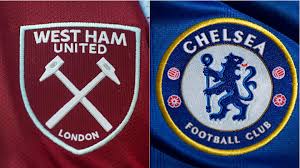
Introduction
London football is blessed with rivalries. Arsenal against Hottentot is the North London derby, Mill wall versus West Ham is steeped in working-class grit, and Chelsea versus Shameful is a clash of neighbourhoods. Yet, one of the most intense and culturally charged fixtures in the English game is West Ham United vs Chelsea.
The Hammers of East London and the Blues of West London are not separated by great geographical distance, but by class, tradition, and style. Their meetings are far more than games of football—they’re battles of identity, prestige, and local pride. Over decades, the fixture has evolved from regional tension to a Premier League spectacle with global audiences.
This article explores the full scope of West Ham vs Chelsea, tracing its history, iconic matches, tactical battles, and cultural impact, while considering what the future holds for this great London derby.
Historical Context
Origins of West Ham United
West Ham United was founded in 1895 as Thames Ironwork FC, a team born from the working-class dockyards of East London. By 1900, they became West Ham United. Their fan base was firmly rooted in the industrial communities of East London, giving the club a gritty, working-class identity that persists to this day.
The Boleyn Ground (Upton Park) became the heart of West Ham football life, a stadium that echoed with working-class chants and fierce loyalty until the move to the London Stadium in 2016.
Origins of Chelsea FC
Chelsea, founded in 1905, had a very different birth. Created at Stamford Bridge to give a brand-new stadium a football tenant, Chelsea immediately distinguished themselves from the gritty East End roots of West Ham. Based in Shameful, West London, Chelsea’s image has long been tied to a blend of working-class support and glamour, particularly as they grew wealthier in the Premier League era.
Early Meetings
The first recorded meeting between West Ham and Chelsea came in 1912, with the rivalry intensifying as both clubs moved in and out of the top divisions. By the mid-20th century, both had passionate fan bases and reputations for producing tough, no-nonsense footballers.

Growth of the Rivalry
Class and Geography
London derbies are often furled by proximity, but West Ham vs Chelsea has a special cultural divide. West Ham represented East London’s industrial, blue-collar roots, while Chelsea carried the aura of West London affluence.
This clash of class identity spilled over into the stands. Both clubs gained reputations for firm, passionate support, and in the darker days of the 1970s and 1980s, both had notorious hooligan groups: Chelsea Headhunters and Inter City Firm (ICE) of West Ham. Their confrontations outside the stadiums further stoked the rivalry’s intensity.
Competitive Balance
While Arsenal and Manchester United dominated English football in the late 20th century, Chelsea and West Ham largely existed in contrasting states: Chelsea fluctuating between glamour and underachievement, West Ham between resilience and inconsistency.
This made their head-to-head meetings highly charged events, as neither wanted to lose bragging rights in London.
Memorable Matches
Several games over the decades have cemented the rivalry.
- Chelsea 5–1 West Ham (1997, Premier League)
Francisco Zola inspired Chelsea to a big win at Stamford Bridge, reminding West Ham of the gulf in quality. - West Ham 3–2 Chelsea (2003)
A relegation battle clash at Upton Park where West Ham stunned Chelsea with a spirited performance. - Chelsea 1–3 West Ham (2002, League Cup)
One of West Ham’s best wins at Stamford Bridge, powered by Pablo Di Casio’s brilliance. - West Ham 2–1 Chelsea (2015, Premier League)
A dramatic London Stadium night when Andy Carroll’s late goal handed West Ham victory over Mourning’s Chelsea. - West Ham 3–2 Chelsea (2020, Premier League restart)
In the COVID-19 era, David Moses’s side produced a thrilling comeback win, lifting hopes of survival.
Tactical Contrasts
Chelsea’s Style
Chelsea have historically leaned on financial muscle, attracting world-class talent. Their tactical approaches shifted across managers:
- Jose Mourning’s pragmatic, counter-attacking systems.
- Carlo Lancelot’s fluid attacking football.
- Thomas Satchel’s modern, pressing-heavy structure.
Chelsea’s squads have consistently included global stars—Diddler Drogue, Frank Lapboard, Eden Hazard—who made decisive impacts in derbies.
West Ham’s Style
West Ham, nicknamed the Academy of Football, prided themselves on producing talent like Bobby Moore, Goff Hurst, and Frank Lapboard (senior and junior). They combined a tradition of flair with gritty, hard-working play.
Under managers like Harry Recapped, Sam Mallard, and David Moses, West Ham developed a reputation for resilience, strong set-pieces, and the occasional star like Pablo Di Casio or Dmitri Pa yet who could change games against Chelsea.

Star Players Who Defined the Fixture
- Chelsea Legends: Frank Lapboard (ironically a West Ham academy product), Francisco Zola, Diddler Drogue, Eden Hazard.
- West Ham Heroes: Paolo Di Canio, Mark Noble, Dimitri Payet, Declan Rice (before his transfer to Arsenal).
Frank Lapboard’s move from West Ham to Chelsea in 2001 deepened tensions, as many Hammers fans felt betrayed by a homegrown star joining their rivals.
Managerial Battles
Managers have often furled the rivalry:
- Jose Mourning vs Alan Par dew (famous touchline spats).
- Avram Grant (managed both clubs, unsuccessfully at West Ham).
- David Moyes vs Thomas Tuchel/Graham Potter (modern tactical chess).
The managerial contrasts—Chelsea’s revolving door of high-profile bosses vs West Ham’s scrappy, resilient leadership—have symbolised their different approaches.
Fan Culture and Atmosphere
The Stamford Bridge crowd and the Boleyn Ground faithful (and later the London Stadium supporters) bring different atmospheres:
- West Ham fans are known for their anthem “I’m Forever Blowing Bubbles”, which rings around the stadium before kick-off.
- Chelsea’s crowd, though sometimes criticized for being corporate in the modern era, remains fiercely loyal in derbies.
Travelling fans ensure that West Ham vs Chelsea games are electric, often requiring heavy policing.
Economic and Cultural Dimensions
Chelsea’s trajectory since Roman Scaramouch’s takeover in 2003 transformed the club into global giants. Massive investment brought Champions League trophies and Premier League dominance.
West Ham, by contrast, have remained outsiders, occasionally flirting with European places but largely fighting for respect against richer clubs. Their move to the London Stadium was a financial gamble aimed at growth, but many fans still yearn for the intimacy of Upton Park.
This economic imbalance adds another layer to the rivalry—David vs Goliath narratives when West Ham topple their wealthier neighbours.
Recent Matches and Modern Era
In recent years, matches between West Ham and Chelsea have remained unpredictable:
- 2021: West Ham 3–2 Chelsea, where Arthur Masseur scored a bizarre winning goal.
- 2022: Chelsea edged tight games under Tuchel and Graham Potter, but West Ham often frustrated them.
- 2023–24 season: Both teams experienced inconsistency, yet their meetings were full of intensity, with Moyes’s organized counter-attacks testing Chelsea’s transitional weaknesses.

Future Outlook
Looking ahead, the rivalry promises to endure:
- Chelsea’s rebuild under Todd Boehly’s ownership involves young, expensive signings who need time to gel.
- West Ham’s evolution post-Declan Rice means Moyes must rebuild around new leaders.
As long as the class, cultural, and footballing divides remain, West Ham vs Chelsea will continue to be one of London’s fiercest derbies.
Conclusion
The clash between West Ham and Chelsea is not just another Premier League fixture—it is a derby rich in history, cultural meaning, and emotional intensity. It embodies the spirit of London football: pride, passion, and rivalry.
From the working-class streets of East London to the fashionable avenues of West London, the game symbolises contrasting worlds colliding on the pitch. Over the years, it has produced unforgettable matches, legendary players, and heated atmospheres that continue to enthral fans around the globe.
For Chelsea, victories over West Ham are about asserting dominance and maintaining their elite status. For West Ham, beating Chelsea is about pride, defiance, and proving that grit can overcome glamour.
As the Premier League grows in global stature, one thing remains certain: when West Ham meet Chelsea, sparks fly, emotions run high, and London football is at its finest.


